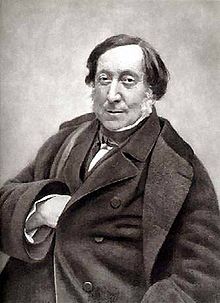Rossini - Olga Peretyatko
Théâtre des Champs Eysées, Paris, Monday January 11 2016
Conductor and fortepiano: Ottavio Dantone. Soprano: Olga Peretyatko. Accademia Bizantina.
I believe Olga Peretyatko has had quite a tough schedule touring this Rossini recital. I have also read that she's in the habit of introducing the numbers herself, but was advised against it (possibly by the TCE management?) in Paris, a detail she announced, using a microphone, at the start of the evening. Perhaps fatigue, perhaps the destabilising change in routine, perhaps the cold and damp, perhaps just stage fright at facing a new audience - perhaps any or all of these affected the first half of the programme, as what we heard sounded highly competent, carefully crafted and studiously musical, but too well-behaved (what the French call "policed"), and neither particularly individual nor obviously exceptional - taking no risks. La Comtesse de Folleville lacked folly, as the soprano tried too hard to act. My neighbour went so far as to complain he was very nearly bored.
But eventually, after the interval, it was as if a different person and different singer emerged (in a different dress: red instead of fuchsia. I say "fuchsia," not "pink," just to show I know how to spell it), more at ease, more natural, less arch - and with clearer diction. From Tancredi onwards we were on a roll: warm, silkily golden timbre, a fuller voice than usual, these days, in Rossini, beautiful phrasing, impeccable staccato flourishes, full-voiced high notes... Olga Peretyatko is not a "stratospheric" coloratura soprano, so she's sparing with the top notes and doesn't chuck them in, unwritten, for free - she ends her arias on the low note, not the high one; but when she sings them, they are indeed sung: worked at (I don't think they come easily), full-voiced, phrased even - and in tune.
In other words, in the second half of this recital it finally became clear why she's now so famous - and attracts fans from abroad carrying bouquets of roses marked "Viva Rossini, Viva Olga". Her encore was "Una voce poco fa". And as it was the only one she'd brought, and the Parisians plugged away at their rhythmic clapping, refusing to let her go, she had to sing it twice.
The Accademia Bizantina (an odd name, but they come from Ravenna) is a period-instrument orchestra. They, too, seemed to take a while to warm up: there were some strange sounds from the woodwinds at the back and odd tuning from the 'cellos on the right. Our old friend the lone booer, up in the gods, even had it in for the conductor, for a while. But, like Olga P., in the second half of the programme, they were up to cruising speed, and gave us Rossini with bite and crunch and sparks, sudden, startling ffs, and the whiff of the field that valveless horns bring, even a degree of Sturm und Drang, often bringing to mind Haydn, and sometimes Gluck and Schubert.
Very interesting, and I was glad to find out, by the end, what the fuss was about. Once again, all was well that ended well.
Conductor and fortepiano: Ottavio Dantone. Soprano: Olga Peretyatko. Accademia Bizantina.
- Il viaggio a Reims: “Partir, oh Ciel! Desio… Grazie vi rendo o Dei”.
- Il Signor Bruschino: Sinfonia.
- Il viaggio a Reims: “All’ombra amena”.
- Il barbiere di Siviglia: Temporale (storm).
- Il turco in Italia: “I vostri cenci vi mando.. Squallida veste e bruna… L’infelice, che opprime sventura”.
- Semiramide : “Bel raggio lusinghier”.
- Tancredi: Sinfonia.
- Tancredi: “Di mia vita infelice… No, che il morir”.
- Grand’overtura obbligata a contrabasso.
- Matilde di Shabran: “Ami alfine… Tacea la tromba altera”.
 |
| Rossini |
But eventually, after the interval, it was as if a different person and different singer emerged (in a different dress: red instead of fuchsia. I say "fuchsia," not "pink," just to show I know how to spell it), more at ease, more natural, less arch - and with clearer diction. From Tancredi onwards we were on a roll: warm, silkily golden timbre, a fuller voice than usual, these days, in Rossini, beautiful phrasing, impeccable staccato flourishes, full-voiced high notes... Olga Peretyatko is not a "stratospheric" coloratura soprano, so she's sparing with the top notes and doesn't chuck them in, unwritten, for free - she ends her arias on the low note, not the high one; but when she sings them, they are indeed sung: worked at (I don't think they come easily), full-voiced, phrased even - and in tune.
 |
| Ravenna |
Very interesting, and I was glad to find out, by the end, what the fuss was about. Once again, all was well that ended well.



Comments
Post a Comment